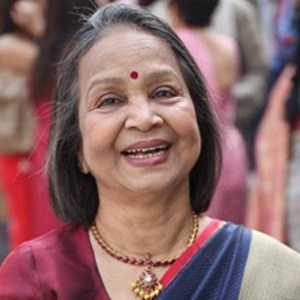
World Health Organization (WHO) chief Tedros Adhanom Ghebreyesus has recently said that India’s situation is a devastating reminder of what the coronavirus can do. Indeed he was right as the country is suffering from a severe and more dangerous second wave of the pandemic. The authorities have confirmed more than 16 million cases and 1,86000 deaths. India has overtaken the US with the highest number of issues. No doubt there is an unprecedented health emergency as the Centre and the state governments are on the test.
When the first wave of Covid hit the world in 2020 there was an inadequate number of beds and medical equipment in India. There were no vaccines. Despite all these, India managed to fight the first wave successfully, but the second wave is more serious. Though one year later, we now have more medical kits, hospital beds, and vaccines, but there is not much preparedness because no one expected a second wave.
Where the state governments and the Central government, as well as the public, had gone wrong was the complacency. They all had lowered their guard. It was the immune system that fought the covid well last year, and the epidemiologists have also had acknowledged it. Even during the second wave of the pandemic, the rural people are faring better. The intensive vaccination drive launched by the Government is going on successfully. India is number one in vaccine technology, and the vaccine manufacturers were working day and night to roll out the vaccines. India even exported vaccines as partly gifts and partly commercial deals to other countries. But with opening up of the vaccination for those above 45 has resulted in a shortage of vaccines. The government has further opened it up for those above 18 which might result in more vaccine shortages. All efforts are being made to increase the supply.
So, where did we go wrong? The complacency was the first thing that is responsible for the killer second wave. The authorities were so confident that the Union Health Minister Harsh Vardhan even announced the covid era was over in March this year. Then came the second wave unannounced.
Secondly, the Election Commission had conducted assembly elections to five states, namely West Bengal, Assam, Kerala, Tamil Nadu, and Puducherry, amid pandemic. Many experts feel that the election rallies were the super spreaders. Probably the Commission was encouraged because of the successful conduct of Bihar polls last year. But that was during the period when the Covid cases were coming down. The Commission could have at least banned the election rallies. The political parties could have restrained themselves from addressing huge gatherings where people participated without masks or maintaining social distances. But almost all parties are guilty of not doing this. By the time the Commission woke up and banned the rallies, it was too late.
The third mistake was the authorities allowed millions of devotees to take bath in the Ganges in Hardwar during the Kumbh Mela this month. This again was a super-spreader. Wiser counsels prevailed on the Uttarakhand chief minister who cut short the Mela. By that time, it was too late.
The fourth was the failure of the state governments to address the migrant labour issue, but the latter has no faith in the chief ministers. It was also the failure of the states to provide primary medical facilities to the poor and needy. At the macro level, the authorities failed to make timely and correct decisions.
The fifth is the politicization of Covid. The Centre blamed the states for not being alert, and the states claimed that the Centre was not heeding their requests for more oxygen and vaccination doses. It is a fact that whoever is to be blamed the crisis worsened. The same players last year worked in tandem and fought the Covid. The Prime Minister took the chief ministers on board and shared the burden. No doubt this continued until December 2020. But from 2021, politics took over all else.
Finally, the public should get their share of the blame as they had ignored the covid regulations since January 2021. Swayed by false rumours, they were also apprehensive of taking the coved vaccine initially when the government had launched the most significant ever vaccine drive in March. But now, there is a huge demand, but the supply is not adequate.
The country is facing a health emergency the like of which we have never seen before. If the Centre, states, and the public are on the same page, the pandemic may be contained. What is required is micro containment The responsibility lies with all three stakeholders. The sooner they realise the better. This is the time for all to come together and fight the pandemic as they did in 2020.

